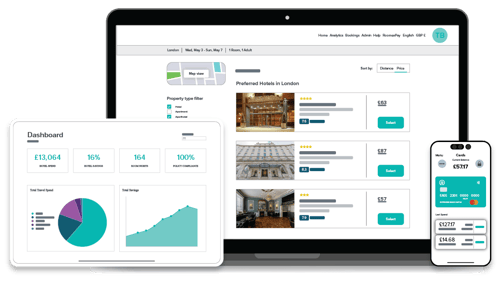One of the recurring issues with business travellers is keeping tabs on spending and ensuring everybody adheres to your company’s travel policy. Nobody wants to be heavy handed in dishing out reprisals for out of policy bookings. So what’s the alternative?
There is a new school of thought that has caught the attention of corporations around the world who are now turning to behavioural science for solutions.
Unlike traditional economics, which assumes people make decisions logically and rationally - behavioural economics merges human behaviour and psychology into the economics mix.
Behavioral Insights Team
We can learn a lot of tricks from the UK government’s Behavioural Insights Team (BIT), which is perhaps the most successful body to date applying behavioural insights to public policy.
Its objectives are to reinvent government services by making them more cost effective and easier to use, enabling people to make “better choices for themselves”.
In one experiment, the UK Revenue and Customs department partnered with BIT to speed up collection of taxes through behaviourally informed letters telling taxpayers that the vast majority of people living in their area had already paid their taxes.
The letters brought forward £210 million of tax revenue in the 2012/2013 financial year.
In another, aimed to improve patients follow through on their hospital appointments in England, BIT redesigned the appointment letters that were sent out to patients, informing them of how much money the National Health Service lost when patients failed to show up for appointments.
The numbers of missed appointments fell by 25%.
Changing the way the information was communicated and injecting a ‘social norm’ message to both sets of letters brought about increased positive results.
Guilt Shaming Colleagues into New Habits
Here’s another example closer to home for me -
I had always been a cappuccino kind of morning person. I’d always felt useless without one. For years it was my routine…wake up, shower, breakfast, commute to work and pop in for a flying visit to the favourite coffee shop before I step into the office.
That was before Louise, my health conscious, vegetarian, Bikram-loving crossfit veteran, started working next to me. Her healthy living lifestyle guilt shamed me.
These days, I’m a ginseng-beetroot-berries-broccoli-spinach shake kind of morning person.
Louise, to her credit never lectured or cajoled me into changing the habits of a lifetime. I just kind of felt like a waste of space next to her and working in an open plan office, I didn’t want people to look at the two of us as if we were a ‘before and after’ comparison advert for healthy living.
Nobody ever said a word to me, but the public shame of it all was too much, so I’ve changed my wicked ways. Now, I understand this was all in my head, but nevertheless it worked wonders. With my new morning routine, I feel like a new person, full of natural energy.
For Business Travellers
In business circles, changing bad habits and generating a cost-conscious culture among employees is a challenge. For management, keeping tabs on what business travelling executives are spending on accommodation, travel and entertainment can prove a logistical and financial headache.
We all know that you can’t force people to be more rational, but by recognising and anticipating cognitive behaviours in your employees, you can design targeted, cost-effective interventions that veer people toward better decisions and habits.
Passenger Tool Reports
Roomex provides a Passenger Report tool which consolidates all employee expenditure into one report so office managers can see at a glance what each employee, by name, is spending on accommodation and expenses at any stage throughout the year.
All information, including spend, savings and performance against negotiated rates, is stored under in live reports which can also be broken down by hotel, division, and internal cost centre. In the travel and management industry, this is a subtle reminder to employees that management are aware of what they are spending.
In this scenario, when employees know this knowledge tool is accessible by senior management they are more conscious not to overspend on accommodation and can inadvertently bring down costs within the team.
“Because these reports show, per person in a company, who spends what and where, this in itself adjusts behaviour without a company having to create a specific travel policy,” says Michael Steele, at Roomex.
This tool is effectively what behavioural scientists call the Nudge, a strategy proving to be the key tool for businesses trying to save on expenses. Nudges harness the discreet decision-making processes that operate automatically amongst people without drastically restricting their choices.
Tapping into this feelgood community spirit that we’re all in this together, without any heavy handed intervention is being seen as a major cost saving across many industries. Isn’t it time you introduced something similar in your office?
For a nudge in the right direction – click here.
Tags:
Workforce Travel
August 1, 2017

